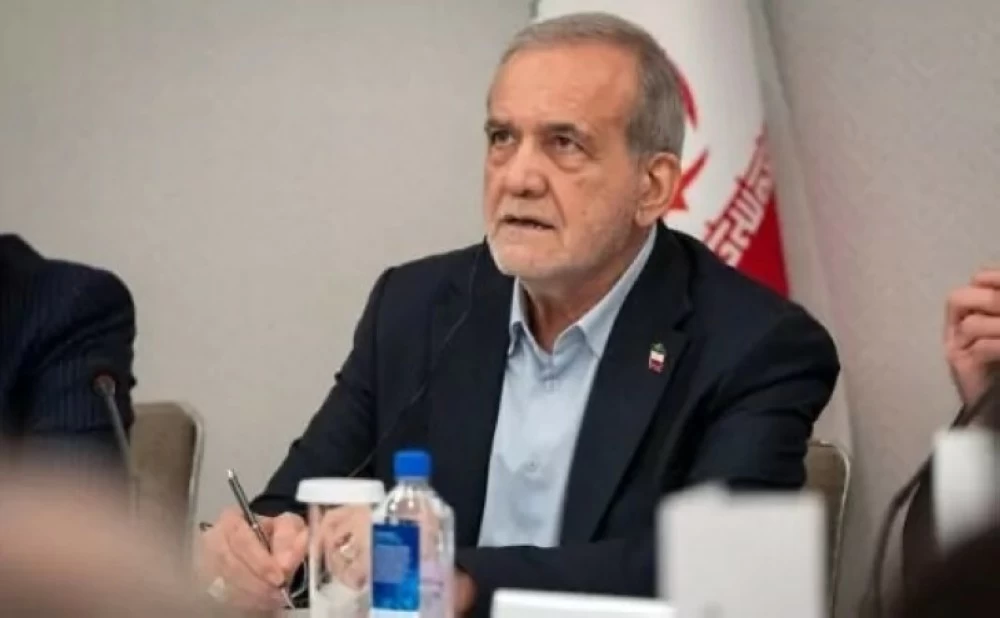أطلق الرئيس الإيراني مسعود بزشكيان تحذيرات شديدة من تداعيات موجة الجفاف التي تضرب بلاده، مشيراً إلى أن استمرارها قد يفرض على الحكومة اتخاذ قرارات استثنائية، من بينها احتمال إخلاء العاصمة طهران إذا لم تهطل الأمطار خلال الأسابيع القادمة.
تحذير رئاسي وخطط طوارئ محتملة
قال بزشكيان، وفق تصريحات نقلتها وسائل إعلام رسمية، إن الحكومة تتابع الأزمة عن كثب وتستعد لتطبيق إجراءات صارمة لترشيد استهلاك المياه في حال بقاء معدلات الأمطار عند مستوياتها المتدنية حتى نهاية نوفمبر، مؤكداً أن «البلاد تواجه وضعاً حساساً قد يتطلب خطط طوارئ شاملة».
أزمة مائية تضرب العاصمة
وتعيش إيران منذ أشهر على وقع أزمة مائية حادة تسببت في انقطاعات متكررة للمياه ببعض مناطق العاصمة، ما دفع السلطات إلى مطالبة السكان بتخزين احتياجاتهم اليومية وتقليل الاستهلاك قدر الإمكان.
تحديات بيئية واقتصادية متراكمة
وتأتي هذه الأزمة في وقت يواجه فيه سكان طهران تحديات أخرى تتعلق بتلوث الهواء وارتفاع تكاليف المعيشة وأسعار الإيجارات، بينما تشير بيانات رسمية إلى أن 19 سداً رئيسياً في أنحاء البلاد تقترب من الجفاف، وأن نسبة امتلاء السدود لا تتجاوز 35%، بحسب وكالة الأنباء الإيرانية (إرنا). وتدرس الحكومة حزمة إجراءات عاجلة لضمان الأمن المائي، تشمل إعادة توزيع الموارد بين المحافظات المتضررة، وتعزيز خطط ترشيد المياه في المدن الكبرى.
The Iranian President Masoud Bezhakian issued severe warnings about the repercussions of the drought wave hitting his country, indicating that its continuation may force the government to make exceptional decisions, including the possibility of evacuating the capital Tehran if it does not rain in the coming weeks.
Presidential Warning and Possible Emergency Plans
Bezhakian stated, according to remarks reported by official media, that the government is closely monitoring the crisis and is preparing to implement strict measures to rationalize water consumption if rainfall levels remain low until the end of November, emphasizing that “the country is facing a sensitive situation that may require comprehensive emergency plans.”
Water Crisis Strikes the Capital
Iran has been experiencing a severe water crisis for months, resulting in repeated water outages in some areas of the capital, prompting authorities to urge residents to store their daily needs and reduce consumption as much as possible.
Accumulating Environmental and Economic Challenges
This crisis comes at a time when Tehran residents are facing other challenges related to air pollution, rising living costs, and rental prices, while official data indicates that 19 major dams across the country are nearing drought, and the water level in the dams does not exceed 35%, according to the Iranian news agency (IRNA). The government is considering a package of urgent measures to ensure water security, including redistributing resources among the affected provinces and enhancing water rationalization plans in major cities.

